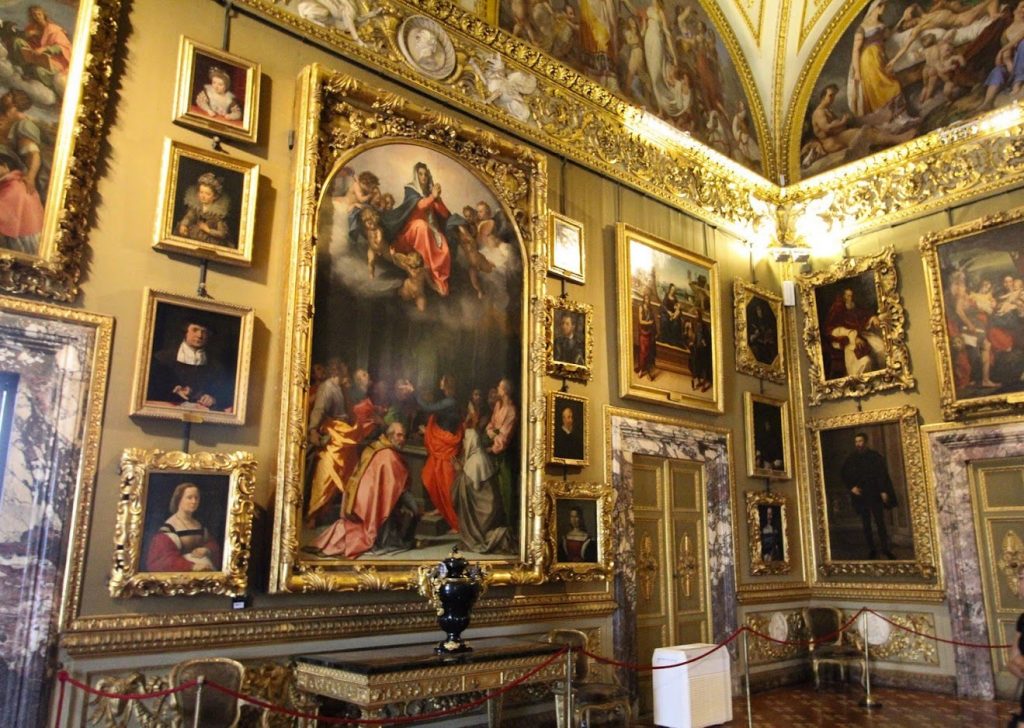
Pitti Palace Guided Tour Magnificence at the Court of the Medici
Frescoes and interiors in the Palazzo Pitti, Florence (1637-61) by Pietro da CORTONA. The Palazzo Pitti in Florence, purchased from the Pitti family by the wife of Duke CosimoI de' Medici in 1549 and renovated and expanded by Bartolommeo Ammanati, served as a residence of royal proportions for roughly 350 years.
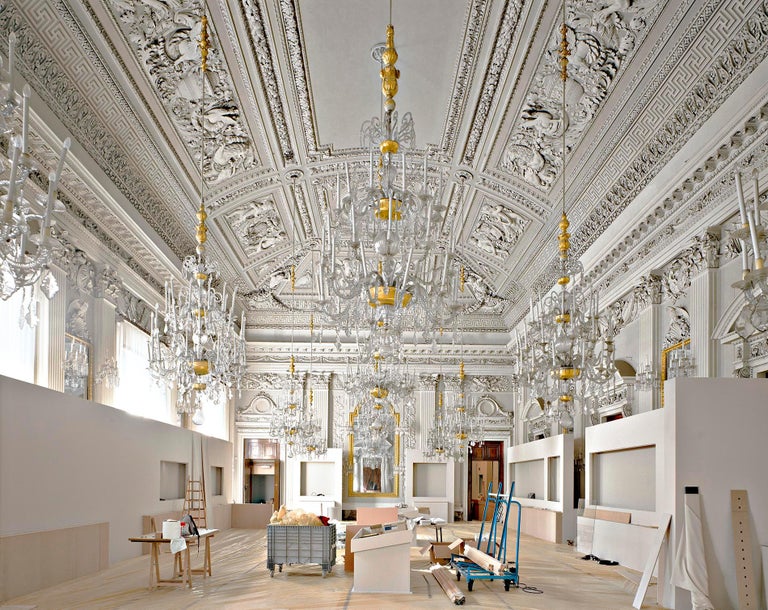
Massimo Listri Palazzo Pitti Sala Bianca I, Firenze, Italy Florence Interiors For Sale at
Browse 3,914 authentic palazzo pitti stock photos, high-res images, and pictures, or explore additional boboli gardens or galleria dell accademia stock images to find the right photo at the right size and resolution for your project. boboli gardens. galleria dell accademia. basilica di santa croce. florence.

Fly Me Away Florença, um destino de eleição! Florença, Pitty e Interior de palácio
Technique. Frescoes and stuccoes. The Room of Venus starts the famous series of elegant rooms in the winter apartment on the first floor of Palazzo Pitti, the so-called Planetary Rooms. Pietro da Cortona was commissioned to decorate them with frescoes and stuccoes by Ferdinando II de' Medici in 1641. With this choice the grand duke shows that.

Palazzo Pitti, Firenze. Classic interior design luxury, Italian style furniture, Classic
The Pitti Palace in Florence, otherwise known as the Palazzo Pitti, is a vast palace originally constructed in the Renaissance era. In terms of the Pitti Palace's architecture, the current palazzo originates from 1458 and was once the residence of an enterprising banker from Florence, Luca Pitti. This article will explore the Pitti Palace in.

Guide To the Treasures of the Pitti Palace in Florence Italy
The palazzo was originally designed by Filippo Brunelleschi and built for the Pitti family in 1457, and it remains one of Florence's largest and most elaborate architectural monuments - not to mention the biggest museum complex in the city, with the main palazzo alone covering 32,000 square metres. In 1549 it was sold to the Medicis and.
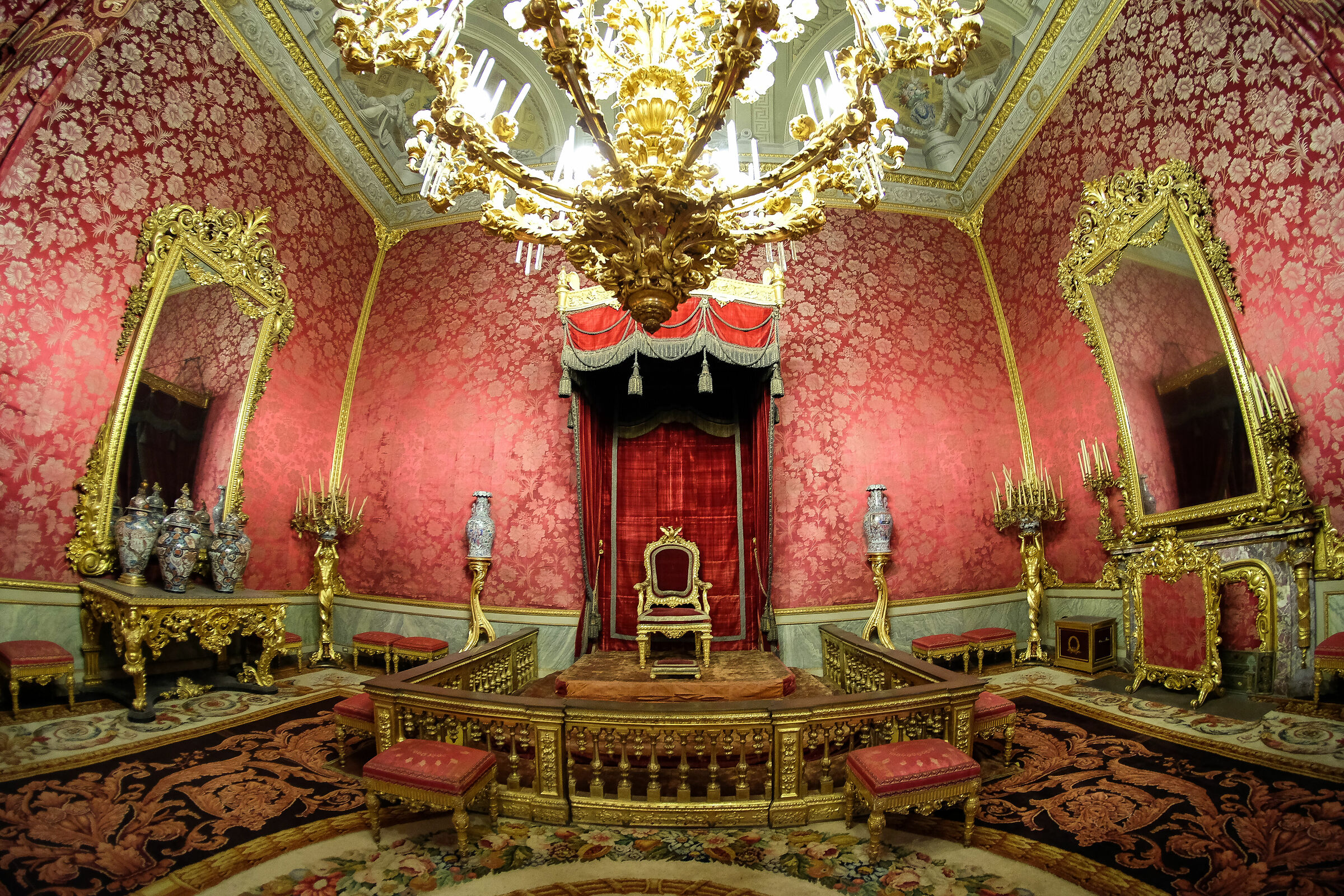
Palazzo Pitti Sala del Trono JuzaPhoto
The Palatine Gallery twists four centuries of Grand Ducal Tuscan lifestyle with Renaissance and Baroque paintings. Lavish, sumptuous chambers of the Grand Dukes, private rooms and original public audience halls are today an exceptional setting for an outstanding collection of about 500 works (canvas and panels) formerly collected by the Medici's.
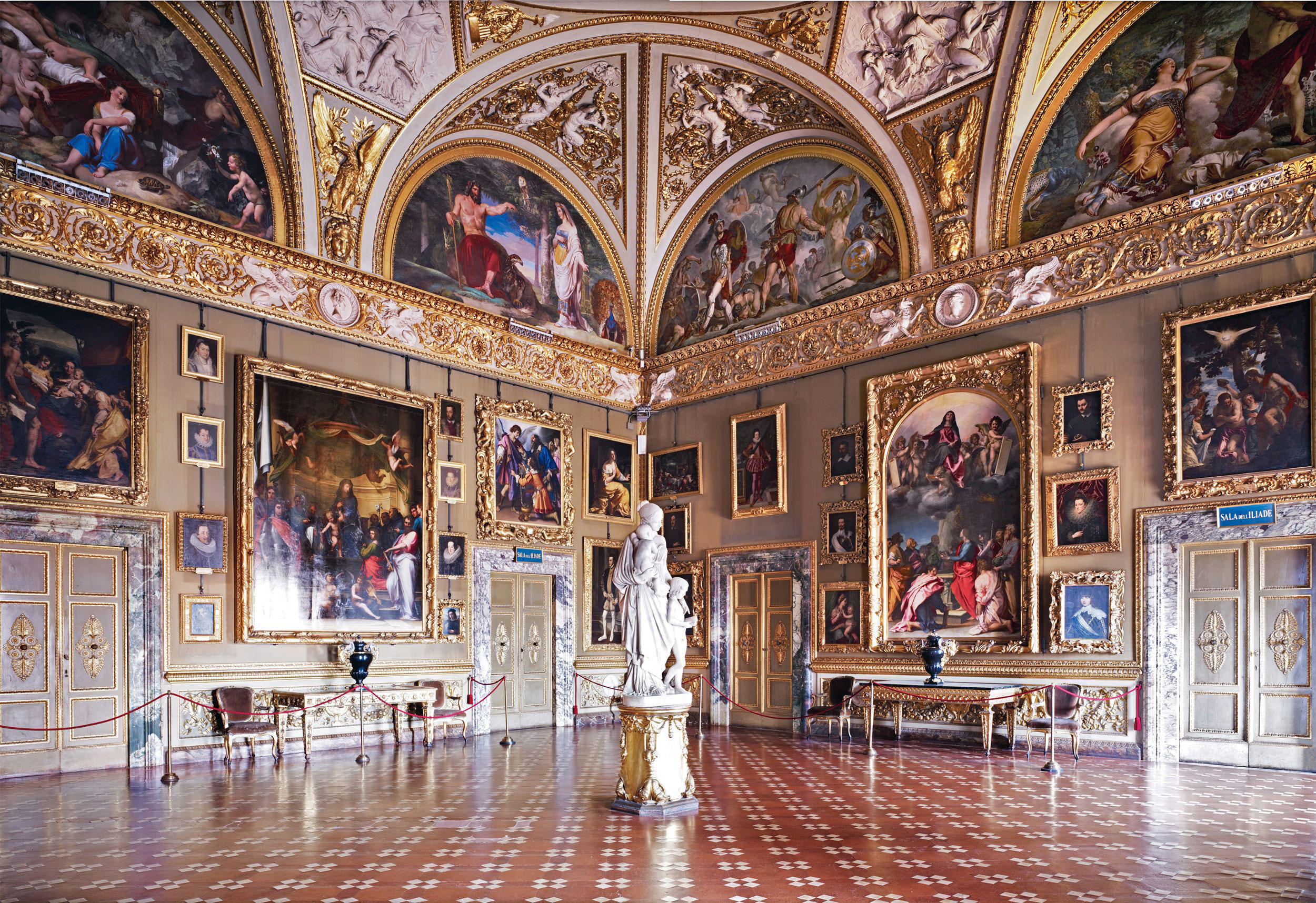
Palazzo Pitti, Sala Saturno Jornal Tornado
The Palazzo Pitti was the center of courtly life in grand-ducal Florence. function as the main ceremonial apartment in the palace, and This study contributes to our knowledge of daily activity within this Margaret Daly Davis' study of the Medicean collections has. immense structure by examining the scattered but extensive sources for identified.

Palazzo Pitti, Firenze. One of the somptuous room inside the beautiful Palazzo statue
The palace is the largest palace in Florence and one of Florence's most stunning architectural gems. It was built in 1457 for the Florentine banker Luca Pitti, a Medici peer and rival. When Cosimo the Elder built the Medici-Riccardi Palace, a prideful Pitti decided to trump his Medici nemesis.

Costume Gallery Pitti Palace
Pitti Palace Architecture. The palace was commissioned by Luca Pitti, who had owned the site from as early as 1418. It was probably begun in 1457 and was certainly well advanced by 1469 when the Pitti family was already installed. By the latter date, however, Luca Pitti had fallen from official favour, and the building work seems to have been.
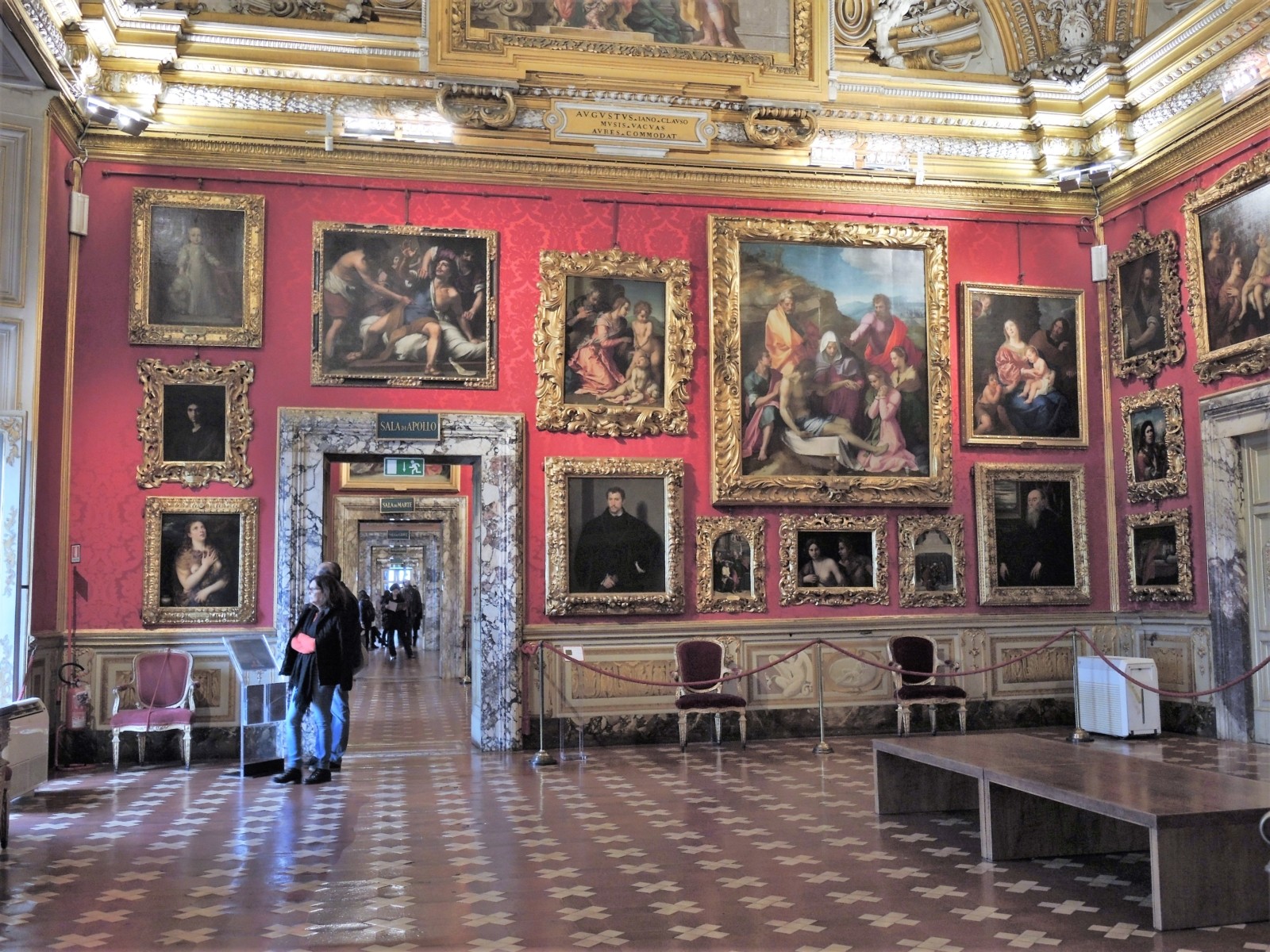
THE ELEGANCE AND OPULENCE OF THE PRINCES PITTI PALACE & BOBOLI GARDENS Walks Inside Italy
The Palazzo Pitti is comprised of series of galleries and rooms, including the Palatine Gallery, which houses a collection of 16th- and 17th-century paintings; the Royal Apartments, with well.

Interiors of Palazzo Pitti, Florence, Italy Editorial Stock Image Image of italy, florence
Single ticket for all Palazzo Pitti collections: Palatine Gallery, Gallery of Modern Art, Museum of Costume and Fashion, Treasury of the Grand Dukes, Museum of Russian Icons and Paltine Chapel. Details and timetable. Promo and discounts.

Palazzo Pitti, Sala Bianca, Florence (Firenze), Italy Beautiful architecture, Palace interior
In its interior also some works of Italian artists of the 19th and beginning of the 20th century are exposed.. Pitti Palace (Palazzo Pitti) is a large complex of impressive galleries and museums that house important collections of paintings, sculpture and pieces of art. In addition, here are the Boboli Gardens with its wonderful Italian style.
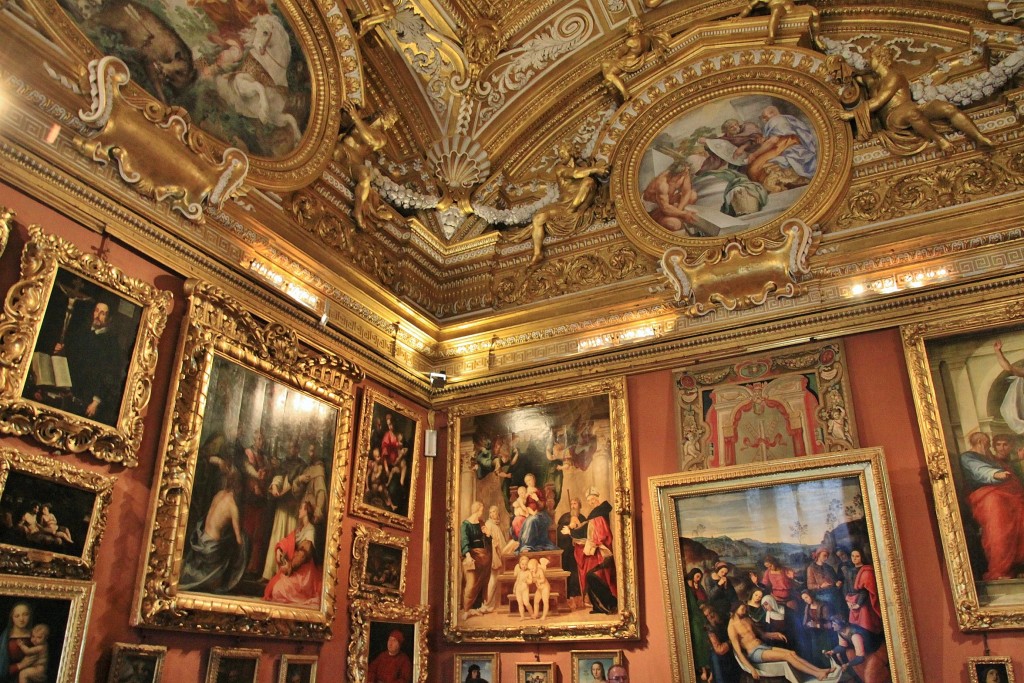
Foto Interior palacio Pitti Florencia (Tuscany), Italia
RMG58GT3 - Der Palazzo Pitti, ist wie erwähnt, jetzt königliche Residenz. Der an sich schlicht erscheinende Bau kann vollständig eine königliche Hofhaltung aufnehmen. Tritt man ein, so ist man überrascht von der langen Flucht von Säulen, in denen Gemälde, kostbare Möbel und Luxusgegenstände aller Art zusammengetragen worden sind, alles, was Macht und Reichtum nur anhäufen können.

Interiores De Palazzo Pitti, Florencia, Italia Fotografía editorial Imagen de italia, techo
Now the Palace was ready to host the magnificent grand ducal works of the best artists of the time in its sumptuous frescoed rooms - "This most magnificent of all works". Passed in 1860 to the Crown of Italy and inhabited in the years when Florence was the capital of Italy (1865-1871) by Victor Emmanuel II, Pitti Palace was donated in.
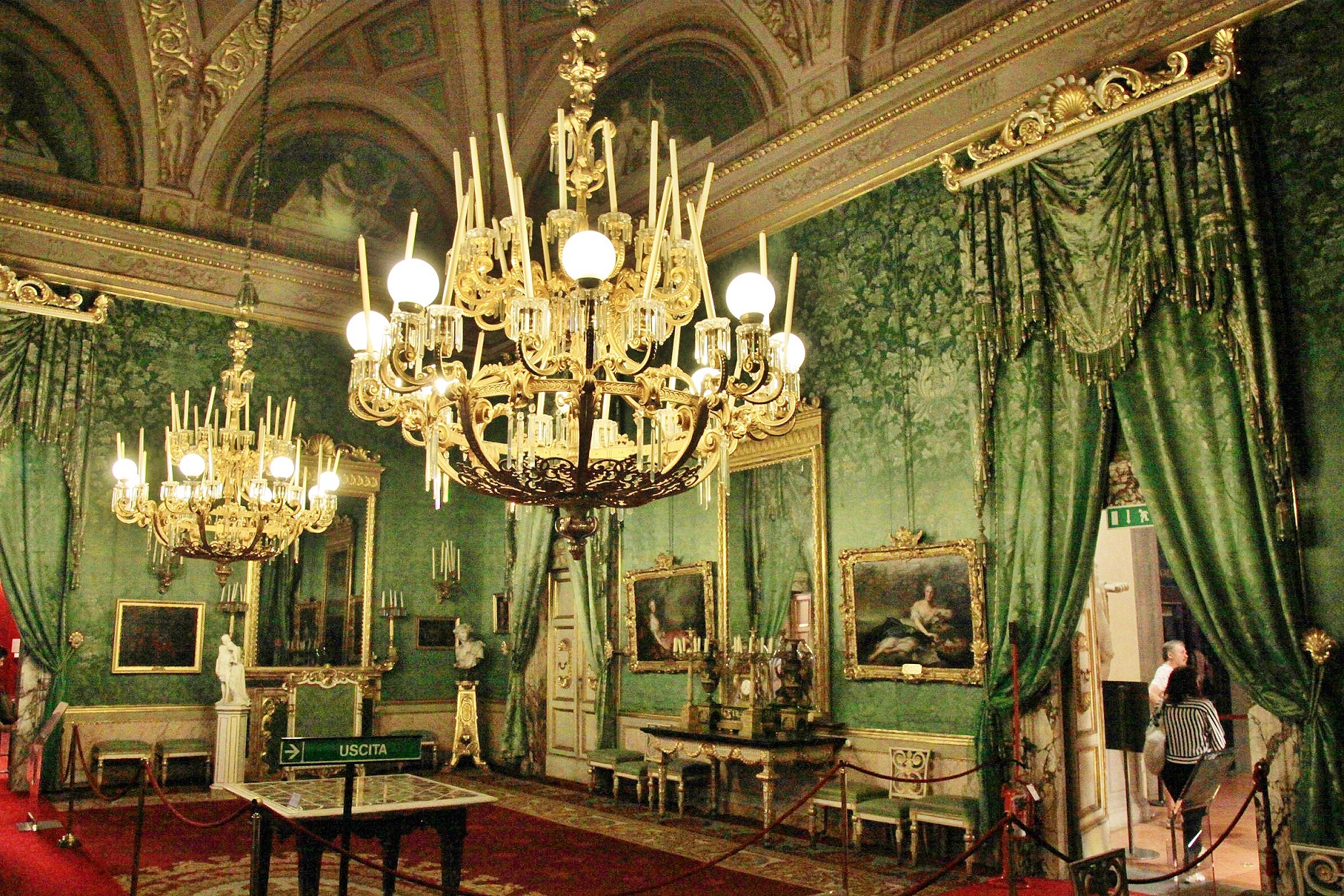
Foto Interior del palacio Pitti Florencia (Tuscany), Italia
Interior View, Pitti Palace Museum / Close. Formerly the residence of the Grand-Dukes of Tuscany and later of the King of Italy, this is one of Florence's largest architectural monuments. Today, it houses several galleries and museums that include important collections of paintings and sculpture, porcelain, a costume gallery and other works of art.
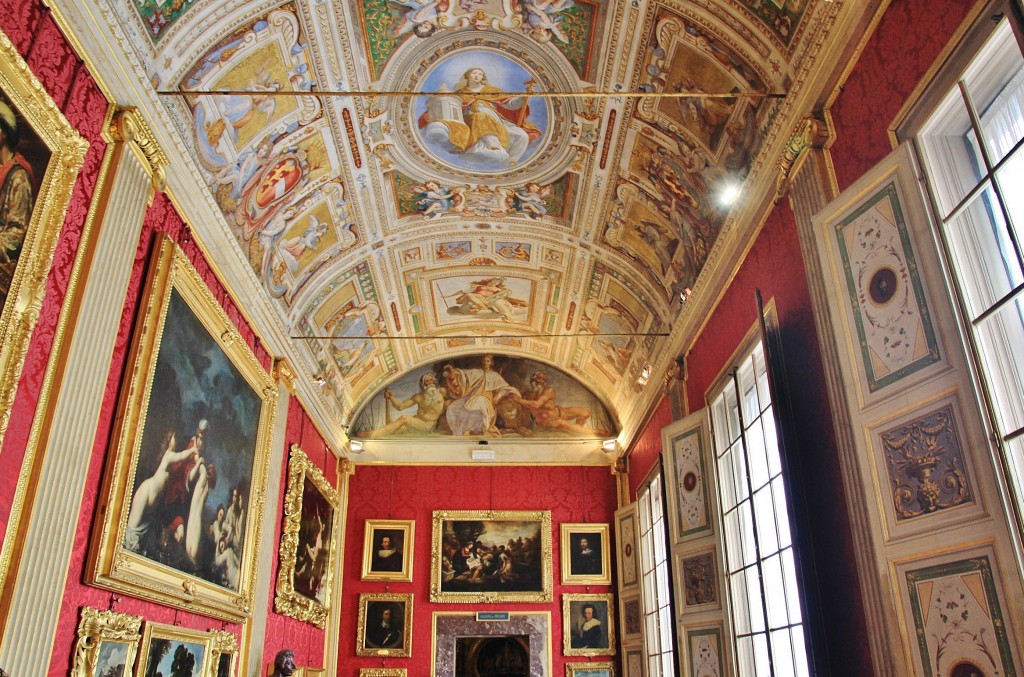
Foto Interior del palacio Pitti Florencia (Tuscany), Italia
The Pitti Palace has a history that has grown over the centuries and that got its start in the 1400s from the rivalry between two of Florence's main families:. Doubling the depth of the interior volume, the unadorned 15th century palace was transformed into the grandest monumental Florentine palace of the late Renaissance.